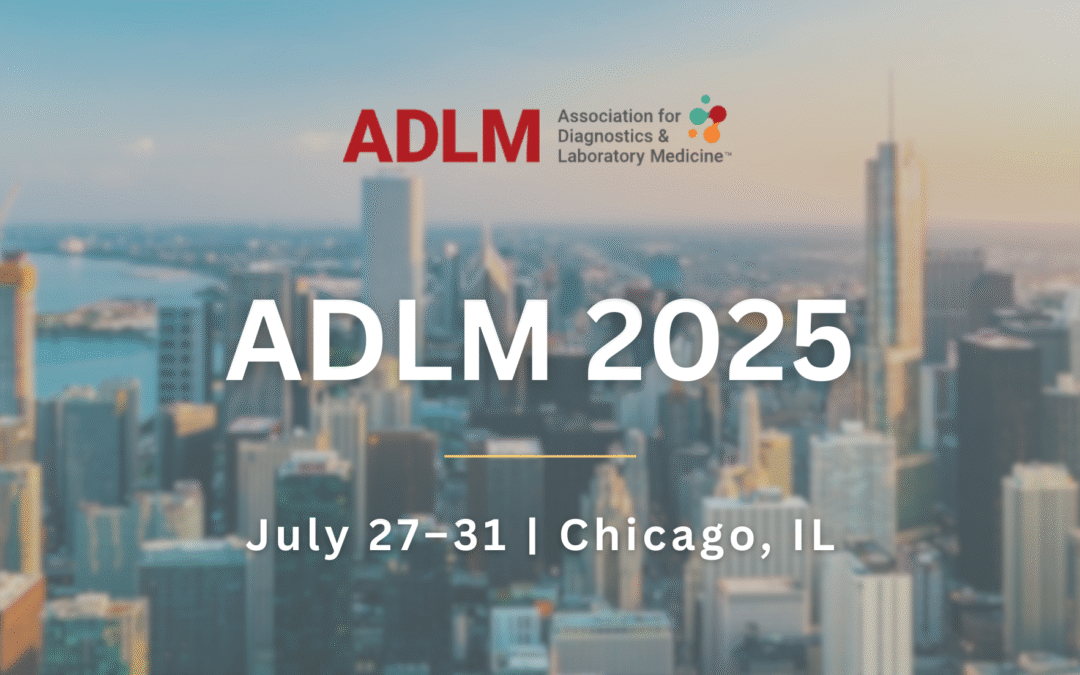Explore how Ellis Bio is revolutionizing DNA methylation analysis with their groundbreaking bisulfite conversion kits at ADLM 2025.
Ellis Bio is attending ADLM 2025
Chicago, IL – The Association for Diagnostics & Laboratory Medicine (ADLM) in partnership with the Canadian Clinical Society of Chemists (CSCC), is set host the ADLM Clinical Lab Expo from July 27-31, 2025, in Chicago. This highly anticipated conference will gather global leaders to discuss the latest innovations and trends in laboratory medicine. From artificial intelligence to nanotechnology, mass spectrometry, and diagnostic discovery, the event promises a captivating exploration of cutting-edge advancements.
Ellis Bio, founded in 2023 as a spin-out from The University of Chicago, will showcase its groundbreaking bisulfite conversion kits at ADLM. The kits are designed to revolutionize DNA methyl conversion for methylation workflows, important for clinical and translational research in cancer detection and beyond.
Ellis Bio will be available at booth 4363 to discuss the latest technologies firsthand. All ADLM participants are invited to stop by to discuss how Ellis Bio solutions can accelerate clinical assays and advance research. Don’t miss the chance to engage with innovators at the forefront of epigenetic discovery.
Unveiling SuperMethyl™ Max Bisulfite Conversion Kit: Advancing DNA Methylation Analysis for Low-Input Samples
Ellis Bio is proud to introduce the SuperMethyl™ Max Bisulfite Conversion Kit, a next-generation solution specifically engineered to preserve DNA integrity. Featuring an exceptional 99.8% cytosine-to-thymine (C-to-T) conversion rate and minimal DNA degradation, the kit delivers higher library yield, greater library complexity, substantially larger insert sizes, and enhanced GC coverage uniformity—outperforming conventional bisulfite conversion technologies.
Optimized for low-input workflows, the SuperMethyl™ Max Kit has been validated for inputs ranging from 100 pg to 50 ng of cell-free DNA (cfDNA), genomic DNA (gDNA), and DNA from formalin-fixed paraffin-embedded (FFPE) samples. It is fully compatible with major NGS library preparation kits and sequencing platforms, making it a powerful tool for epigenomic studies.
Introducing SuperMethyl™ Fast Bisulfite Conversion Kit: Redefining DNA Methylation Analysis with Ultra-Fast Performance
Ellis Bio is also proud to present the SuperMethyl™ Fast Bisulfite Conversion Kit, the fastest solution available for DNA bisulfite conversion. This kit achieves complete bisulfite conversion in 7 minutes, with a total protocol time of only 35 minutes, enabling rapid and accurate methylation analysis. With over 99.5% conversion efficiency, it ensures precise detection of methylation patterns while minimizing background noise.
Designed for convenience and reliability, the kit includes ready-to-use reagents with no mixing required, simplifying setup and reducing user error. Its flexible workflow allows customization for a variety of sample types and downstream applications, including methylation-specific PCR (MSP), arrays, and next-generation sequencing (NGS). Combining speed, accuracy, and ease of use, SuperMethyl™ Fast is ideal for high-throughput, time-sensitive epigenetic research.
Pioneering the Future: The Impact of Ellis Bio’s Innovations on Methylation Biomarker Detection and Epigenetic Studies.
Ellis Bio’s innovations in bisulfite conversion technology are the culmination of years of research. The company’s Scientific Founder, Prof. Chuan He, and his team have been at the forefront of advancing the fields of epitranscriptomics and epigenomics. Professor He’s groundbreaking research on RNA and DNA modifications has earned international recognition and led to the development of some of the most advanced molecular tools in use today. The introduction of the SuperMethyl™ Fast and SuperMethyl™ Max Bisulfite Conversion Kits represents a significant leap forward in DNA methylation workflows. These kits empower researchers to unlock new insights in cancer detection, aging, and beyond.

